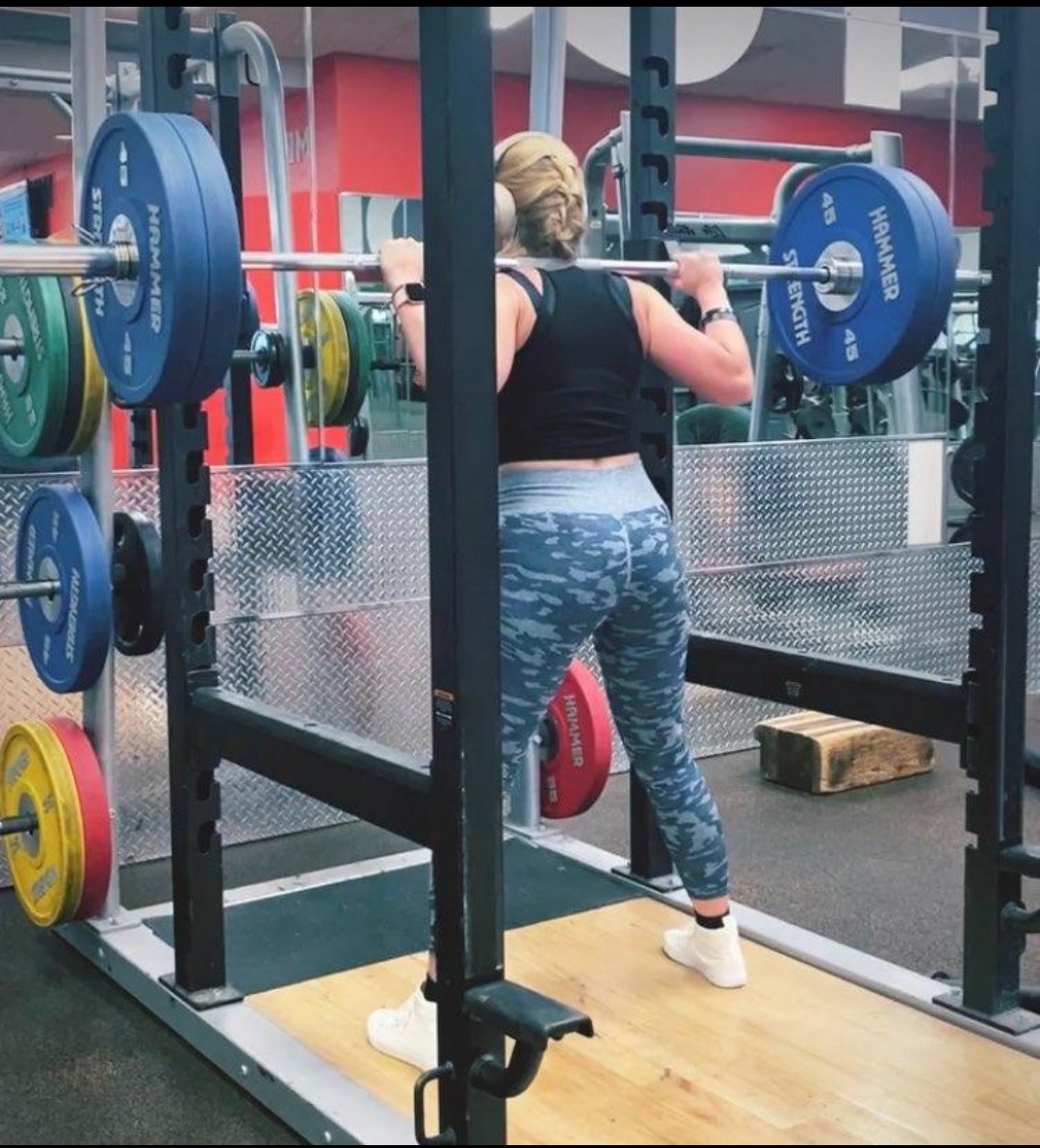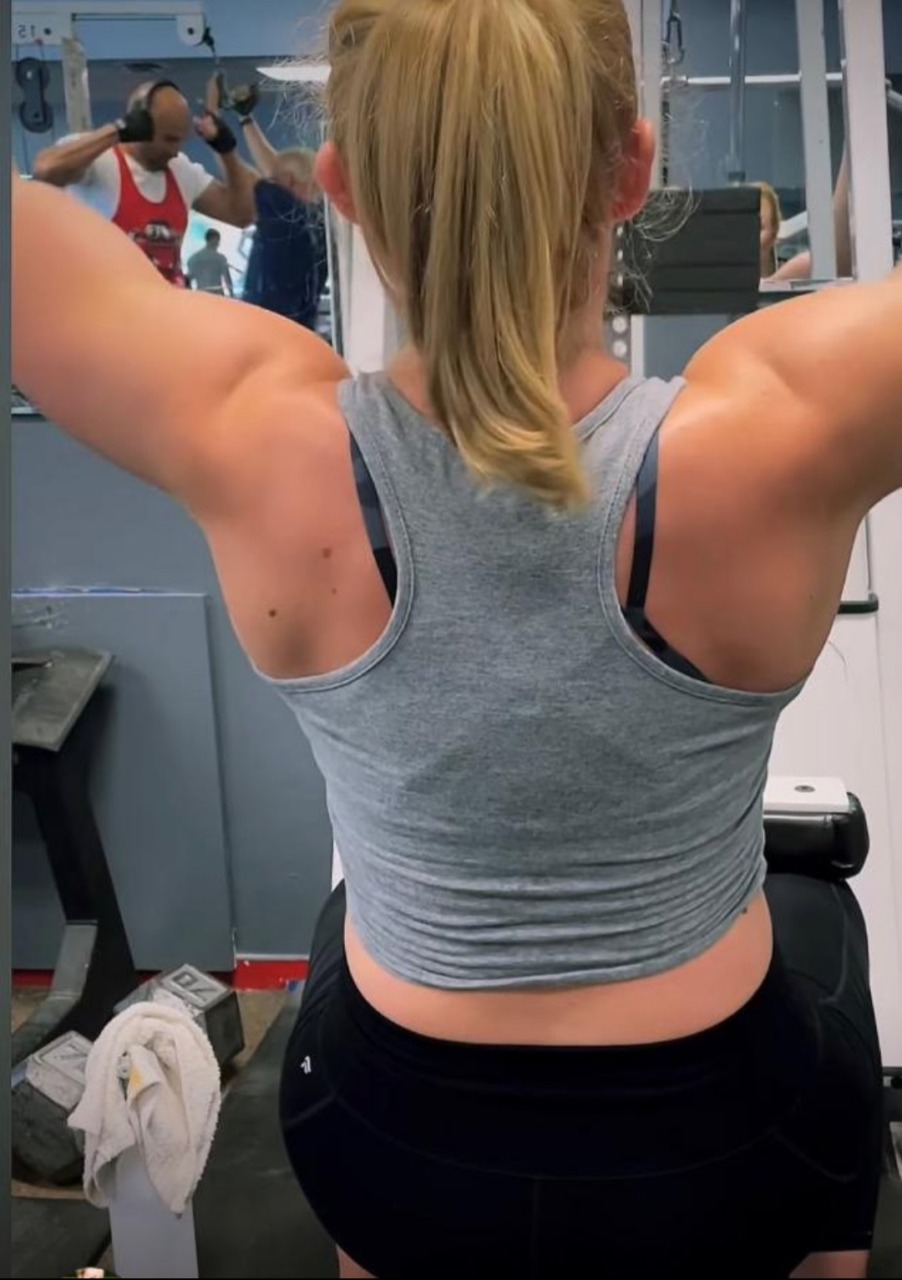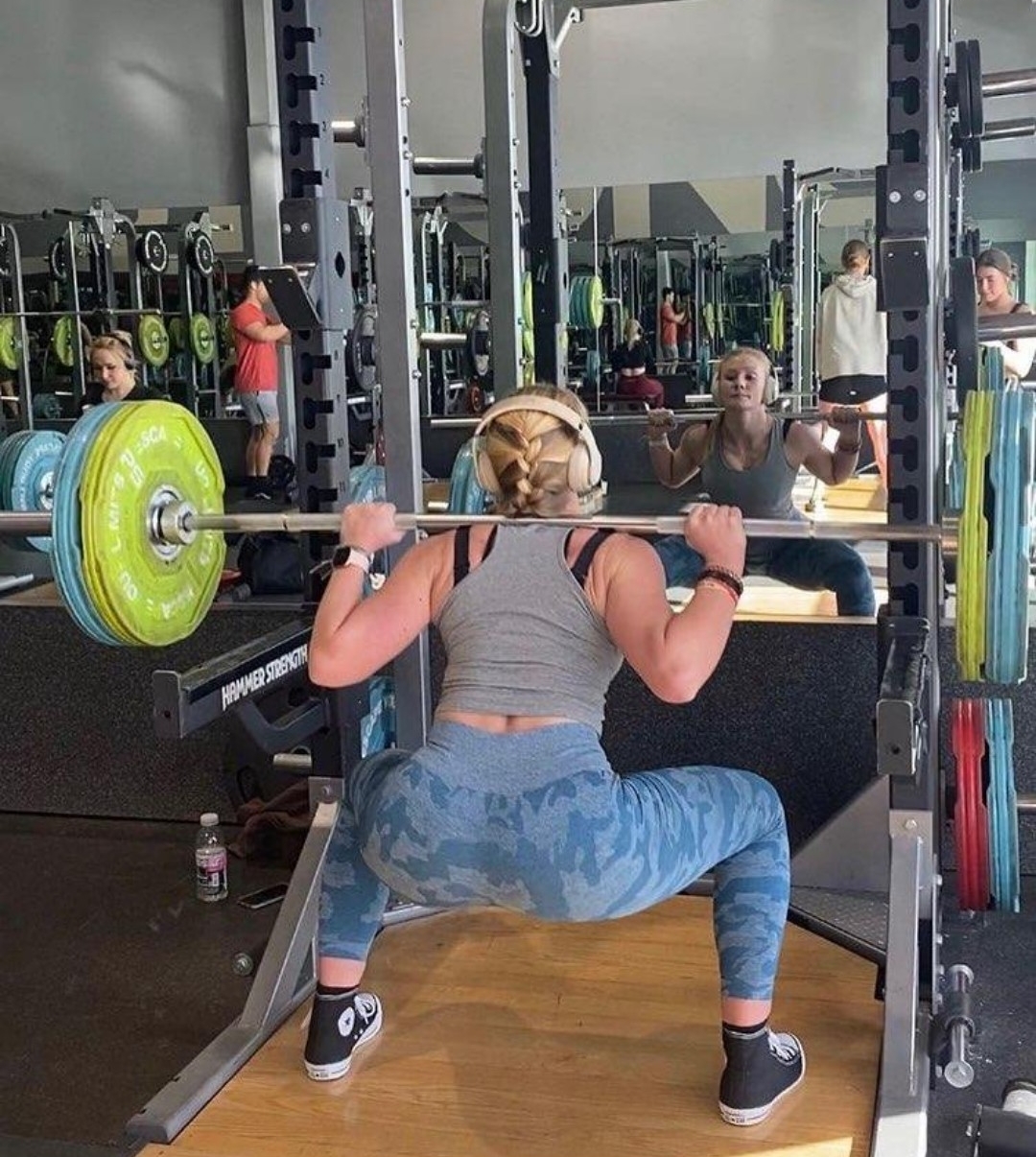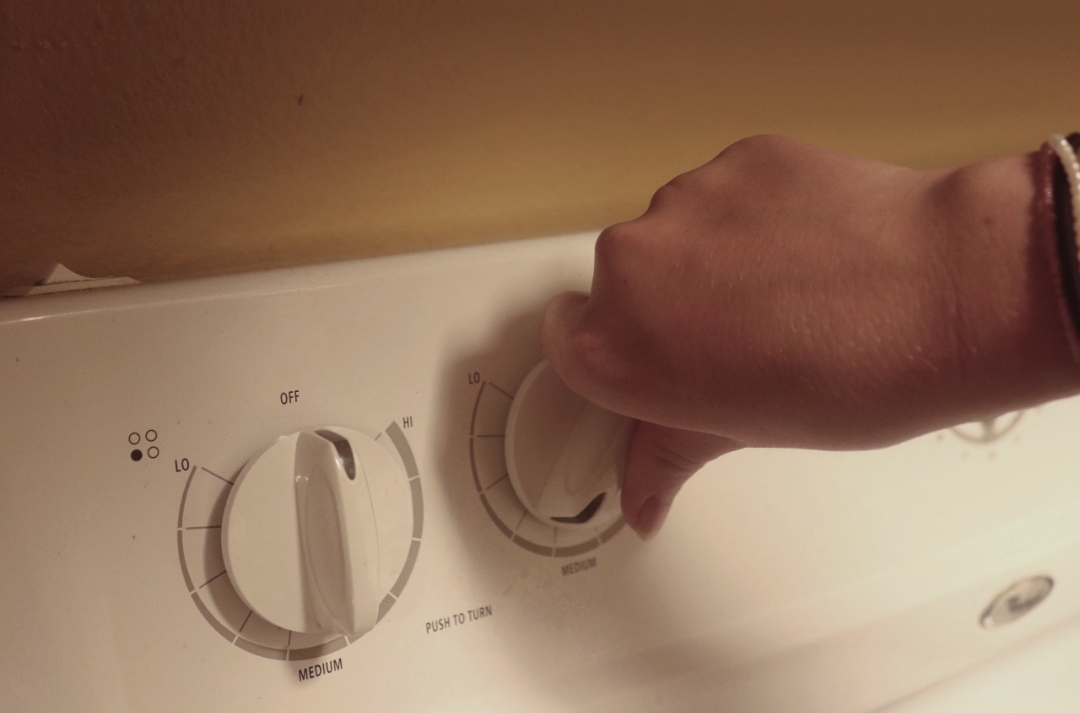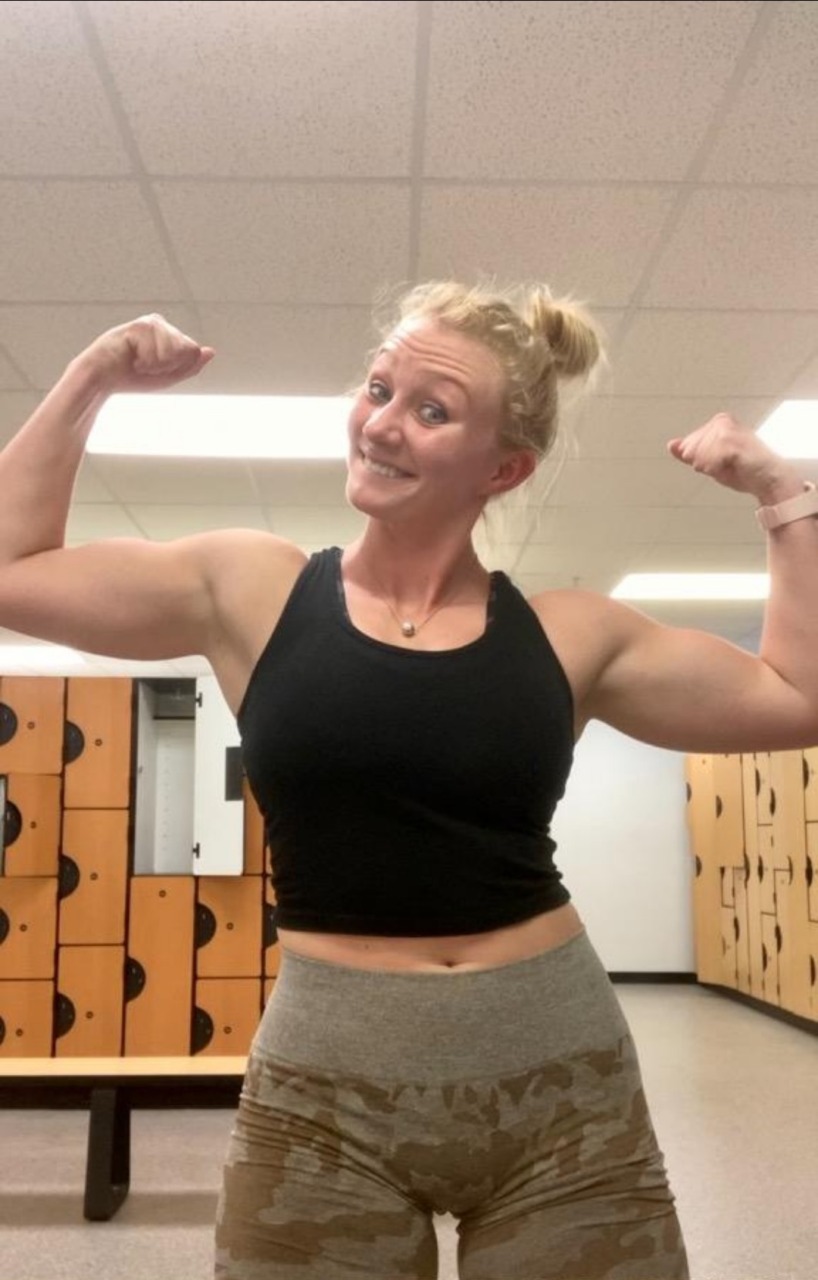
Women at BYU are speaking out about how bodybuilding has improved their wellbeing and changed society’s perception of femininity.
Keely Bullock, a bodybuilder and fitness influencer, said she believes the increase in women weightlifters has challenged traditional views of femininity. She said she has received comments on her Instagram and Tiktok questioning what a woman should look like and criticizing her for stepping outside of cultural norms.
“I’m not going to lie — these comments hurt, but I continue posting because I want to inspire women to strengthen their bodies physically and be more comfortable challenging our society’s ideas of femininity,” Bullock said.
Lindsey Cook, a personal trainer who specializes in fitness leadership and nutrition among adolescent female athletes, said approval and disapproval of the people around young women causes them to develop a specific understanding of femininity: that female bodies are meant to be trim and delicate.
Research by Amy Scott, a doctoral student studying bioarchaeology in the Department of Anthropology at the University of Manitoba Winnipeg, shared the historical context behind female bodybuilding.
“Other than specific muscles associated with male and female genitalia, muscle anatomy does not differ between the sexes,” Scott said in her research. “The obtrusive role of culture in associating this dimorphism with social hierarchy demonstrates the link between femininity and imposed powerlessness.”
Scott’s research explained that a social hierarchy emerged between males and females, in which biology — specifically muscle mass — became a tool to justify gender inequality that is still prevalent in contemporary society.
In her research, Scott cited several examples of why bodybuilding for women has had such a powerful impact on society, especially considering what women of past generations went through to reinforce the expectation of small, weak women being the pinnacle of femininity. Extreme dieting, corsets and other forms of body binding are some examples of trends that caused serious damage to women’s bodies in order to keep them small.
According to Cook, as more equality and health research has gained prominence, the ability of women to get stronger without fear of societal disapproval has increased.
“Each time a woman ventures into bodybuilding and weight training and shows increased wellbeing, her example paves the way for more and more to do so, lessening the previous generations’ voices of disapproval,” Cook said.
Cook said that while bodybuilding is a form of rebellion against the idealized version of femininity in American culture for some women, many do it for their own wellbeing and don’t worry about how it affects those around them at all.
“Each time a public problem gains notoriety, like increased depression and anxiety among women as a whole, strength training finds a way into the research in positive and supportive ways, thus changing society’s ideas of what a healthy female body looks like and how femininity can be celebrated within a stronger frame,” Cook said.
Bullock believes that weightlifting has helped her overcome body image issues. She said she is comfortable, happy and proud of what she looks like more than ever.
“I continue to make bodybuilding a key aspect of my identity because it has become an outlet for relaxation and positivity,” Bullock said. “Being a full-time college student with a part-time job and social life, the gym is just what I need at the end of the day to de-stress.”
Cook said that during her time as a personal trainer, she has seen positive correlations between strength training and improved depressive symptoms, blood glucose levels, Type 2 diabetes, total cholesterol, hypertension, self-confidence and more. She claims there’s hardly a common ailment to which strength training does not apply as an aid.
“Survivors of sexual assault may develop compulsive behaviors as a reaction to being attacked,” Scott’s research said. “Bodybuilding for these women provides a sense of control over their bodies, so they no longer feel vulnerable as women, but empowered by their physical strength.”
McKenzie Hefner, a BYU student weightlifter, said weightlifting has helped her mentally and physically and she’s lost over 30 pounds since the beginning of her weightlifting journey.
“While being strong played a role in my decision to start weightlifting, ultimately the most significant factor was that I felt unhealthy,” Hughes said. “I felt like I wasn’t where I wanted to be for myself, and I knew I could be better. Weightlifting offered a workout where failure does not exist — only a baseline from which we can grow.”
Hughes said she believes most weightlifters are not there to build society’s ideal body but to be stronger and healthier. She said the most important thing she has learned from weightlifting is that her ideal body is going to be different than it might be in the minds of other women and that her genetics and build play a large role in what her “ideal” body may be.
“Bodybuilding is a means by which to push the boundaries of femininity and womanhood… the majority of female competitors are highly educated and hold better jobs than most men in the sport,” Scott said in her study.
Scott’s research said that from this perspective, control over the body is the final frontier to be conquered by these highly successful women.
“I have control over what I do for and to my body, and I think that becoming and feeling stronger is one of the best ways to feel control in one’s life,” Bullock said.
Bullock said she sees herself as a woman doing something that she loves. She said inspiring others is a positive side effect, but not her priority.
“While bodybuilding may be considered a subculture within society, it has a very real impact on the gender norms that are valued in the Western world,” Scott said. “Bodybuilding for some is considered an act of defiance against the rigid norms of what is considered beautiful.”
Bullock said since she started bodybuilding, she feels more feminine than ever.
“There are always misconceptions about women bodybuilders that we want to look or feel like men,” Bullock said. “The reason I weight-lift is because it makes me happy and I want other women to know that it does not take away from your femininity or mean you are ‘manly’ — it is just something you may enjoy, use to de-stress or just give you the ability to throw some loud music in your ears and let out some of the built up anger.”

